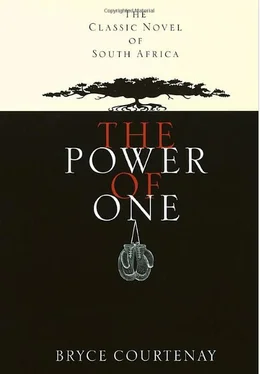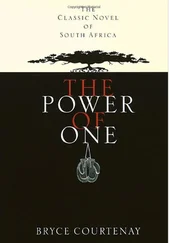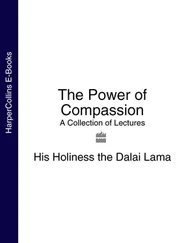Брайс Кортни - The Power of One
Здесь есть возможность читать онлайн «Брайс Кортни - The Power of One» весь текст электронной книги совершенно бесплатно (целиком полную версию без сокращений). В некоторых случаях можно слушать аудио, скачать через торрент в формате fb2 и присутствует краткое содержание. Жанр: Современная проза, на английском языке. Описание произведения, (предисловие) а так же отзывы посетителей доступны на портале библиотеки ЛибКат.
- Название:The Power of One
- Автор:
- Жанр:
- Год:неизвестен
- ISBN:нет данных
- Рейтинг книги:4 / 5. Голосов: 1
-
Избранное:Добавить в избранное
- Отзывы:
-
Ваша оценка:
- 80
- 1
- 2
- 3
- 4
- 5
The Power of One: краткое содержание, описание и аннотация
Предлагаем к чтению аннотацию, описание, краткое содержание или предисловие (зависит от того, что написал сам автор книги «The Power of One»). Если вы не нашли необходимую информацию о книге — напишите в комментариях, мы постараемся отыскать её.
The book is made to movie with the same name.
The Power of One — читать онлайн бесплатно полную книгу (весь текст) целиком
Ниже представлен текст книги, разбитый по страницам. Система сохранения места последней прочитанной страницы, позволяет с удобством читать онлайн бесплатно книгу «The Power of One», без необходимости каждый раз заново искать на чём Вы остановились. Поставьте закладку, и сможете в любой момент перейти на страницу, на которой закончили чтение.
Интервал:
Закладка:
I put Doc’s music between the pages of a slim volume of poetry by Wilfred Owen which Mrs Boxall had given me. ‘Not as soppy as Rupert Brooke, but a better war poet I feel sure,’ she had said.
Leaving home with the knowledge that when I returned it would be to a place which no longer meant Doc made this parting almost unbearably sad for me. My mother tried to chat brightly, but she wasn’t much of a bright chatterer and my granpa just tapped and tamped and puffed and turned and looked up at the mountains and said, ‘The cumulus nimbus is building up, could be a storm tonight, just as the Frensman are in loose bud.’ Frensman was a deep red long-stemmed rose and unless the petals were still in tight bud the storm would damage them. Gert, who at the best of times didn’t have too much small talk, added to my sense of foreboding and made the waiting for the coffee pot to pull out almost unbearably long. I put my hand into the pocket of a new pair of grey flannel slacks, made for me by old Mr Bornstein, and took out Doc’s hunter. I was about to click it open when I was conscious of my stupidity and quickly slipped the beautiful old watch back into my pocket. My haste in doing so immediately pointed to my guilt. I thought I might have escaped detection but after a couple of minutes, when my mother had turned to talk to my granpa, Gert whispered, ‘So you found him, hey? I’m blêrrie glad, Peekay.’ I ignored his remark, pretending not to hear him, and I knew Gert would remain silent.
A whistle warned of our departure and the small crowd on the platform became animated, as happens when an over-extended farewell is suddenly terminated. It occurred in our group too, each of us secretly glad that the waiting was over. ‘Look after yourself, son boy,’ my mother said, offering the side of her powdered cheek.
‘There’s a good lad,’ puff, puff, my granpa shook my hand. As I looked into his face I realised that his blue eyes had become a little rheumy and that the skin around his cheeks and mouth stretched tightly, as happens with thin men when they begin to grow old.
Gert gripped my hand in the traditional excessively firm Afrikaner manner. ‘All the best, Peekay, see you in July, man.’ He jumped into a boxing stance, it was a small physical joke to hide his awkwardness. ‘Keep your hands up, you hear.’ He grinned and leaned forward so that only I could hear, ‘No more fighting Kaffirs you hear, their heads is too hard, man.’
The coffee pot gave a blast of steam whistle, loud enough to belong to a much bigger, more important train. The people in the third-class Blacks Only carriage yelled and screamed with delight, five or six heads and a dozen arms to each carriage window waving bandannas and generally making the most of the farewell occasion, as the little train slowly left the platform. I continued to wave until the train had passed the long bend which took the platform from sight. With a conscious sigh of relief I leaned back into the green leather seat. I knew I’d have the compartment to myself until Kaapmuiden, and I cherished the idea of being on my own. It had been a long week since I had fought Gideon Mandoma.
Hymie was full of news when we got back to school. He’d worked out a formal business arrangement with Mr Nguni and now there were twenty young black boxers training at Solly’s gym, as well as three black boxing officials who would be trained in the handling of boxers and would eventually sit for their referee’s tickets.
Gideon Mandoma and three other young fighters were separated from the other blacks to do their workouts with me on Wednesday afternoons and before church on Sunday morning. Gideon soon became more than just a good sparring partner. He laughed a lot and had a quick wit which delighted me. His English wasn’t strong and at first we mostly spoke in Zulu, until after a workout some three weeks into the term he patted me on the shoulder with his glove. ‘No more Zulu, Peekay, your Zulu comes from my mother’s breast now my English must come from your fists. You must teach me English.’ He propped and slowly stroked his hair in a backward movement the way Hymie would do it, lightly touching it as though preening in front of a mirror. ‘I have one good English words from Hymie.’ He mimicked the way Hymie spat words out: ‘Cheeky bloody Kaffir!’ Gideon threw back his head and laughed happily. ‘This English I understand very good.’
It was then that I hit on the idea. ‘We’re going to start a school for Solly’s black boxers,’ I announced to Hymie on the tram back to school after training.
‘Christ, Peekay, isn’t that going a bit far? Educate the black bastards and before you know where you are they’ll want to take over the country.’
‘It’s as much theirs as it is ours. More actually,’ I said, surprised at his outburst.
‘You’re perfectly right, but can’t we let them take a little longer to find out? Keep the buggers in the dark as long as possible?’
‘Hymie, what are you saying? I thought you were a liberal thinker?’
Hymie laughed. ‘First and foremost I’m a pragmatist but there’s bound to be a quid in it somewhere, although I’m buggered if I can see where. How do you propose going about it, integrate the Prince of Wales School?’
‘C’mon, Hymie, take this seriously. If we go to Singe ’n Burn and put it to him as two Renaissance men and give him a whole line of bullshit about liberalism blah, blah, blah, I’m sure he’ll be in it. We could have the black school in one of the classrooms on a Saturday night.’
‘Already I like it! One lesson a week shouldn’t pose too much of a threat to white civilisation as we know it on the southern tip of Africa.’
‘Well, what do you reckon?’
‘Off hand I can’t think of a way to make any money out of it but as Karl Marx, or was it Christ, said: “Man does not live by bread alone”. Okay, whatever you say.’
‘Great! Because you have to open the subject with Singe ’n Burn by telling him that as a Jew you know what it’s like to be an oppressed people.’
Hymie thought for a moment. ‘Fine, nothing to it, I simply go in and ask Singe ’n Burn to open a black school in this citadel of white privilege, pointing out to him that as an expertly oppressed person for roughly nineteen hundred years …’
‘Good, I’ll make an appointment to see him after school tomorrow.’
Singe ’n Burn proved more difficult than we had anticipated. He was not at all sure of the attitude the Nationalist government might take to one of the country’s most famous English-speaking private schools becoming the cradle of black adult learning.
There were, of course, black schools and some very good ones. But most Africans left school before they reached high school and a great many more after only two or three years of the most basic education. Some, perhaps a majority, never made it to school at all. If, in later years, they wished to learn to read and write, then no adult school facilities existed for them.
We seemed to have reached a stalemate, with Singe ’n Burn promising to put the issue to the school governors, where it was almost certain to be defeated. Their idea of Christian gentleman did not include the brotherhood of man, if it meant lowering the colour bar.
Our arguments had been sound but our politics naive. In South Africa, when a black skin is involved, politics and social justice have very little in common.
‘We’ve been a couple of schmucks to think he’d buy it straight off like that, we’re going to have to make the bastard feel guilty, it always works with a Renaissance man,’ Hymie said. We were sitting in the prefects’ common room which was seldom used by the other prefects after school and was a nice private place to talk or work.
‘I thought we’d already made him feel guilty?’
Читать дальшеИнтервал:
Закладка:
Похожие книги на «The Power of One»
Представляем Вашему вниманию похожие книги на «The Power of One» списком для выбора. Мы отобрали схожую по названию и смыслу литературу в надежде предоставить читателям больше вариантов отыскать новые, интересные, ещё непрочитанные произведения.
Обсуждение, отзывы о книге «The Power of One» и просто собственные мнения читателей. Оставьте ваши комментарии, напишите, что Вы думаете о произведении, его смысле или главных героях. Укажите что конкретно понравилось, а что нет, и почему Вы так считаете.












